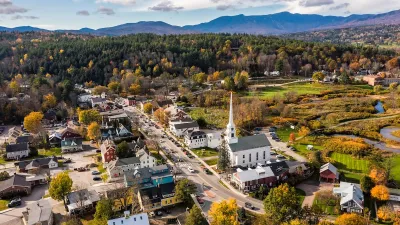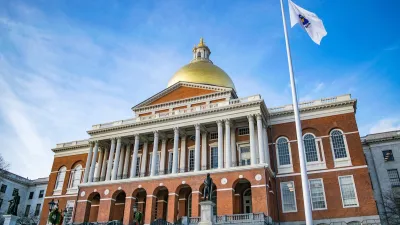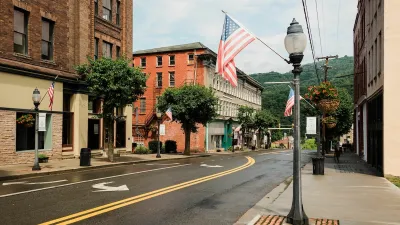Inflation is hitting rural areas particularly hard. One expert sees the possibility of rural residents reconsidering cities as a place to avoid higher costs associated with rural mobility and to make more money.

“Inflation is crippling rural America and driving some people to consider moving closer to cities in an effort to ease the financial stress,” reports Ben Abrams for MPR News.
Abrams cites Iowa State University professor Dave Peters to preset this idea. Peters recently published research on the impact of inflation on rural household expenses between June 2020 and 2022, finding inflation far outpacing income increases in the rural United States—9.2 percent to 2.6 percent, respectively.
According to Peters, rural residents feel the effect of inflation mostly due to the cost of gas and the need to travel long distances to access the resources and services of daily need.
“His analysis found it costs rural households $2,500 more a year to pay for gasoline than it did two years ago. At the same time, prices are also rising for health insurance, veterinarian care, and fuel to heat homes,” explains Abrams.
But whether that inflation pressure is enough to drive rural residents to the city is another question. While many mainstream national media outlets are pushing the narrative of downtowns and big cities searching for a solution to population loss [paywall], and many data sources are providing nuanced evidence of the scale of the pandemic-era urban exodus, Peters dares to suggest that if inflation doesn’t recede soon, rural residents will have to reconsider their lifestyles.
"There are people that I've talked to in Iowa and in Nebraska ... that are really trying to do that financial calculation," says Peters in the article. "They would love to work and get city wages, but they can't commute. It's too expensive with the gas prices. And really, the thing that's holding them back is the cost of homes."
FULL STORY: Inflation is crippling rural America and may even drive people to the cities

Alabama: Trump Terminates Settlements for Black Communities Harmed By Raw Sewage
Trump deemed the landmark civil rights agreement “illegal DEI and environmental justice policy.”

Planetizen Federal Action Tracker
A weekly monitor of how Trump’s orders and actions are impacting planners and planning in America.

How Atlanta Built 7,000 Housing Units in 3 Years
The city’s comprehensive, neighborhood-focused housing strategy focuses on identifying properties and land that can be repurposed for housing and encouraging development in underserved neighborhoods.

In Both Crashes and Crime, Public Transportation is Far Safer than Driving
Contrary to popular assumptions, public transportation has far lower crash and crime rates than automobile travel. For safer communities, improve and encourage transit travel.

Report: Zoning Reforms Should Complement Nashville’s Ambitious Transit Plan
Without reform, restrictive zoning codes will limit the impact of the city’s planned transit expansion and could exclude some of the residents who depend on transit the most.

Judge Orders Release of Frozen IRA, IIJA Funding
The decision is a victory for environmental groups who charged that freezing funds for critical infrastructure and disaster response programs caused “real and irreparable harm” to communities.
Urban Design for Planners 1: Software Tools
This six-course series explores essential urban design concepts using open source software and equips planners with the tools they need to participate fully in the urban design process.
Planning for Universal Design
Learn the tools for implementing Universal Design in planning regulations.
Caltrans
Smith Gee Studio
Institute for Housing and Urban Development Studies (IHS)
City of Grandview
Harvard GSD Executive Education
Toledo-Lucas County Plan Commissions
Salt Lake City
NYU Wagner Graduate School of Public Service





























